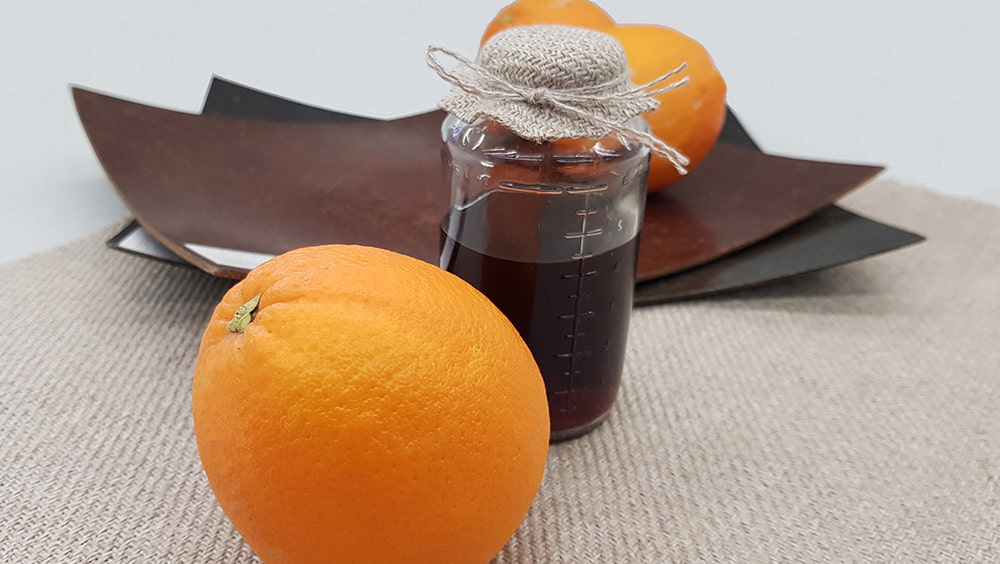Showcase project for the bioeconomy: Orange peels will provide valuable bio-based epoxy resins in the future
Sustainable alternatives are needed to reduce the use of petroleum-based polymers. A promising approach is provided by the international OrangeOil project, in which the Fraunhofer IMWS, among others, is also involved alongside the SKZ Plastics Center. The aim is to develop a bio-based epoxy resin system from orange peels - a residual material from the production of juice and jam.

The widespread use of polymers derived from petroleum is increasingly problematic. The bioeconomy approach provides more sustainable solutions, so that products are manufactured with the help of renewable raw materials, biological residues and innovative processes. Natural oils and their extraction from organic waste and production residues are particularly interesting for the chemical industry. They do not have to be obtained directly from crops or energy plants and do not compete for arable land for primary food production. The OrangeOil project perfectly meets these requirements and is developing epoxy resin systems based on orange oil from orange peels. Orange oil is an essential oil with one of the highest growth potentials on the world market with annual growth rates of about 10%. The project thus makes an important contribution to the development of new production technologies and new materials for the processing industry and fulfills both economic requirements and requirements for climate and environmental protection.
Broad range of applications for bio-based epoxy resins
In the future, bio-based epoxy resins made from OrangeOil can serve a wide range of applications in the rail vehicle, sports equipment, automotive, architectural, shipbuilding and interior design industries. The aim of OrangeOil is to develop a biobased two-component system for special applications, such as use as a pure resin layer of floor coverings and as a matrix component in fiber composites. The combination of the resin with natural fibers in biocomposites is particularly attractive due to their excellent properties such as low density, high specific stiffness and the sustainability of the feedstock.
As part of the project, the partners SKZ, Fraunhofer IMWS and TÜBITAK Marmara Research Center are investigating the production and manageability of the resin and hardener components. After producing the orange oil, it is epoxidized and used to produce samples (pure resin and reinforced plastics). The bio-based resins and fiber reinforced plastics are extensively characterized. The biogenic material will be optimally matched to the processing technology and reproducible process control will be ensured by establishing robust technical rules.
Interested companies can participate
The OrangeOil project started on October 1, 2021. Interested companies are cordially invited to participate free of charge in the project-accompanying committee of the OrangeOil research project (NR 299 EGB), to help shape the investigations and to find out about the current results. The project is funded under the CORNET (Collective Research Networking) program. The initiative networks national and regional programs of collective research of different countries in order to facilitate international research projects for the benefit of small and medium-sized enterprises. In Germany, CORNET is based on the Industrial Collective Research (IGF) funded by the Federal Ministry of Economics and Climate Protection (BMWK).
About the project partners:
SKZ - The Plastics Center
As Europe's largest plastics institute, SKZ has been providing practical solutions for the plastics industry along the entire value chain for over 60 years. In addition to research and development, SKZ offers testing and certification services, congresses and conferences, practical seminars and training courses, and management system certifications.
TÜBİTAK Marmara Research Center
TÜBİTAK Marmara Research Center is a Turkish scientific and technological center that carries out research projects in the field of basic and applied science through its eight subordinate institutes.